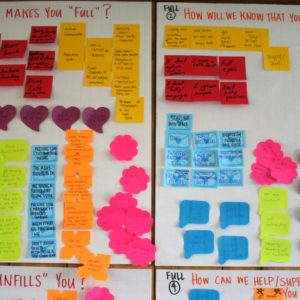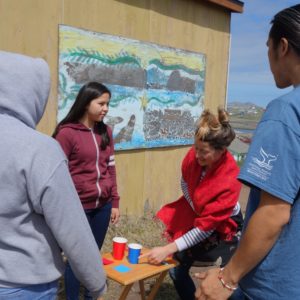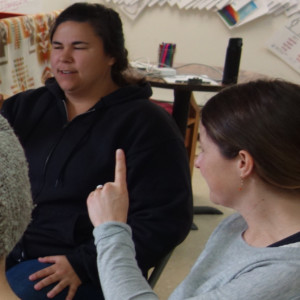We seek Fluency, not Knowledge.
We belong to a culture of “knowledge”, a culture of certification. The self-taught genius, the high-performing maverick, though we may regard them with awe and envy, we don’t encourage our children to follow that risky path. We see the safe route as a plodding journey of toil along a well-traveled path, jumping through hoops placed low enough for the perservering questor to finally gain that piece of paper that says “I sat in that seat; I listened in that classroom; I read those books.”
We call this “learning”. We see the intelligence quotient as a mark of the size of your internal encyclopedia, the sheer amount of facts you carry around. We applaud this kind of intelligence. In fact, intelligence, of the high-forehead brainy variety, in no way connotes competence. Expertise, and competence, diverge in our cultural mythology here, in a rather bizarre way. An expert in an academic field may still not know how to have a simple conversation, or tie their shoes, or cook a meal.
From a fluency perspective, we only measure your competence, not your intelligence. We measure it in many ways. By the grace in which you do things, your comfort in challenging situations, and by your sheer curiosity. The more questions you carry around inside you, the shinier the glint in your eyes as they dance around, the more respect we have for you as a thinker and doer.
Notice the distinction there; in our modern culture we mostly value the amount of facts you carry. In a fluency-based learning culture we value the amount of questions.
In a mainstream sense, to “know” something means to have an intellectual understanding of it, though the execution of it may elude you.
In a fluency sense, to “know” something means you feel comfortable in your skin about it, that you can implement this knowledge easily and gracefully.
Essentially, this underscores the difference between learning a language, and gaining fluency in a language.
Evan Gardner’s “Where Are Your Keys?” language game trains fluency, not learning. It prioritizes grace and effortless command of fundamental skills, over sheer accumulation of vocabulary. It won’t turn you into a walking dictionary of your target language; it will turn you into a graceful speaker of the adult speech of your target language.
The “Where Are Your Keys?” game, as a sub-game of the fluency game (or learning-how-to-learn-and-teach game) that umbrellas it, merely expresses this fundamental priority of fluency.
You can achieve fluency in any skill, for any skill essentially expresses its own language. Not a spoken language, necessarily, but a language of what to do when, of what questions to ask, of how things work, of relationships to (and use of) tools and space.
Fluency, in this sense, means what it suggests: fluidity, flow, grace. Fluency means you can “enter the flow” in a certain skill, without fear or hesitation. It means you know just where to start, and where to go after that.
Fluency, in the fluency game paradigm, means you don’t learn, you teach; either you teach yourself, or you teach others. In doing so, you achieve a major milestone: all your skills and knowledge “come alive”, because they can readily jump from you into others. As living skills, they can spread throughout the people in your family, community, and work life. And your fluency in one skill signifies a fluency in self-teaching. With any new skill, you know just where to start, and where to go after that.
As fluent self-teacher mixes in a growing culture of other fluent self-teachers, the exponential increase of the relationship network (two people have one relationship between them; five people have far more than just five relationships, because they each relate to each other, you’ve increased to ten individual relationships, and so on) accelerates the learning of the group to presently unimaginable levels. Each fluent teacher teaching everyone else, and receiving teaching from everyone else.
This in fact, marks a sea-change from our former notions of the lone individual striving for mastery in their area of endeavor. It means we move as a group into ever-more challenging and exciting areas, increasing in speed of fluency continuously.
It marks a renaissance in community learning; a revolution of fluency over knowledge.





The fluency revolution sounds exciting, Willem.
I’m curious, have you witnessed children at lets say 5 or 6 yrs. old playing WAYK? If you did how did it work out?
take care,
Curt
I haven’t played with children that young, but Evan has, and reports that the “formal” game works best with children 9 or older. Younger than that, the natural way that they learn language dictates a more free-flowing, spontaneous version of WAYK. Certainly you don’t mark out techniques and such the way you would with older players. In this sense, Mothers constantly play WAYK with their young children, and quite masterfully; watching them will teach you a lot about some fundamental principles of the game.